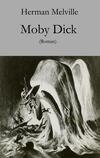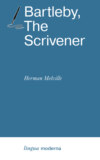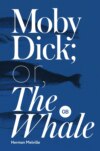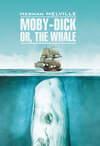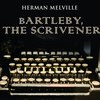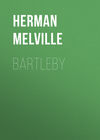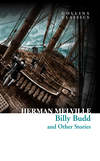Kitabı oku: «Moby Dick», sayfa 10
CHAPTER 22. Merry Christmas.
At length, towards noon, upon the final dismissal of the ship's riggers, and after the Pequod had been hauled out from the wharf, and after the ever-thoughtful Charity had come off in a whale-boat, with her last gift-a night-cap for Stubb, the second mate, her brother-in-law, and a spare Bible for the steward-after all this, the two Captains, Peleg and Bildad, issued from the cabin, and turning to the chief mate, Peleg said:
"Now, Mr. Starbuck, are you sure everything is right? Captain Ahab is all ready-just spoke to him-nothing more to be got from shore, eh? Well, call all hands, then. Muster 'em aft here-blast 'em!"
"No need of profane words, however great the hurry, Peleg," said Bildad, "but away with thee, friend Starbuck, and do our bidding."
How now! Here upon the very point of starting for the voyage, Captain Peleg and Captain Bildad were going it with a high hand on the quarter-deck, just as if they were to be joint-commanders at sea, as well as to all appearances in port. And, as for Captain Ahab, no sign of him was yet to be seen; only, they said he was in the cabin. But then, the idea was, that his presence was by no means necessary in getting the ship under weigh, and steering her well out to sea. Indeed, as that was not at all his proper business, but the pilot's; and as he was not yet completely recovered-so they said-therefore, Captain Ahab stayed below. And all this seemed natural enough; especially as in the merchant service many captains never show themselves on deck for a considerable time after heaving up the anchor, but remain over the cabin table, having a farewell merry-making with their shore friends, before they quit the ship for good with the pilot.
But there was not much chance to think over the matter, for Captain Peleg was now all alive. He seemed to do most of the talking and commanding, and not Bildad.
"Aft here, ye sons of bachelors," he cried, as the sailors lingered at the main-mast. "Mr. Starbuck, drive'em aft."
"Strike the tent there!"-was the next order. As I hinted before, this whalebone marquee was never pitched except in port; and on board the Pequod, for thirty years, the order to strike the tent was well known to be the next thing to heaving up the anchor.
"Man the capstan! Blood and thunder!—jump!"-was the next command, and the crew sprang for the handspikes.
Now in getting under weigh, the station generally occupied by the pilot is the forward part of the ship. And here Bildad, who, with Peleg, be it known, in addition to his other officers, was one of the licensed pilots of the port-he being suspected to have got himself made a pilot in order to save the Nantucket pilot-fee to all the ships he was concerned in, for he never piloted any other craft-Bildad, I say, might now be seen actively engaged in looking over the bows for the approaching anchor, and at intervals singing what seemed a dismal stave of psalmody, to cheer the hands at the windlass, who roared forth some sort of a chorus about the girls in Booble Alley, with hearty good will. Nevertheless, not three days previous, Bildad had told them that no profane songs would be allowed on board the Pequod, particularly in getting under weigh; and Charity, his sister, had placed a small choice copy of Watts in each seaman's berth.
Meantime, overseeing the other part of the ship, Captain Peleg ripped and swore astern in the most frightful manner. I almost thought he would sink the ship before the anchor could be got up; involuntarily I paused on my handspike, and told Queequeg to do the same, thinking of the perils we both ran, in starting on the voyage with such a devil for a pilot. I was comforting myself, however, with the thought that in pious Bildad might be found some salvation, spite of his seven hundred and seventy-seventh lay; when I felt a sudden sharp poke in my rear, and turning round, was horrified at the apparition of Captain Peleg in the act of withdrawing his leg from my immediate vicinity. That was my first kick.
"Is that the way they heave in the marchant service?" he roared. "Spring, thou sheep-head; spring, and break thy backbone! Why don't ye spring, I say, all of ye-spring! Quohog! spring, thou chap with the red whiskers; spring there, Scotch-cap; spring, thou green pants. Spring, I say, all of ye, and spring your eyes out!" And so saying, he moved along the windlass, here and there using his leg very freely, while imperturbable Bildad kept leading off with his psalmody. Thinks I, Captain Peleg must have been drinking something to-day.
At last the anchor was up, the sails were set, and off we glided. It was a short, cold Christmas; and as the short northern day merged into night, we found ourselves almost broad upon the wintry ocean, whose freezing spray cased us in ice, as in polished armor. The long rows of teeth on the bulwarks glistened in the moonlight; and like the white ivory tusks of some huge elephant, vast curving icicles depended from the bows.
Lank Bildad, as pilot, headed the first watch, and ever and anon, as the old craft deep dived into the green seas, and sent the shivering frost all over her, and the winds howled, and the cordage rang, his steady notes were heard,—
"Sweet fields beyond the swelling flood, Stand dressed in living green. So to the Jews old Canaan stood, While Jordan rolled between."
Never did those sweet words sound more sweetly to me than then. They were full of hope and fruition. Spite of this frigid winter night in the boisterous Atlantic, spite of my wet feet and wetter jacket, there was yet, it then seemed to me, many a pleasant haven in store; and meads and glades so eternally vernal, that the grass shot up by the spring, untrodden, unwilted, remains at midsummer.
At last we gained such an offing, that the two pilots were needed no longer. The stout sail-boat that had accompanied us began ranging alongside.
It was curious and not unpleasing, how Peleg and Bildad were affected at this juncture, especially Captain Bildad. For loath to depart, yet; very loath to leave, for good, a ship bound on so long and perilous a voyage-beyond both stormy Capes; a ship in which some thousands of his hard earned dollars were invested; a ship, in which an old shipmate sailed as captain; a man almost as old as he, once more starting to encounter all the terrors of the pitiless jaw; loath to say good-bye to a thing so every way brimful of every interest to him,—poor old Bildad lingered long; paced the deck with anxious strides; ran down into the cabin to speak another farewell word there; again came on deck, and looked to windward; looked towards the wide and endless waters, only bounded by the far-off unseen Eastern Continents; looked towards the land; looked aloft; looked right and left; looked everywhere and nowhere; and at last, mechanically coiling a rope upon its pin, convulsively grasped stout Peleg by the hand, and holding up a lantern, for a moment stood gazing heroically in his face, as much as to say, "Nevertheless, friend Peleg, I can stand it; yes, I can."
As for Peleg himself, he took it more like a philosopher; but for all his philosophy, there was a tear twinkling in his eye, when the lantern came too near. And he, too, did not a little run from cabin to deck-now a word below, and now a word with Starbuck, the chief mate.
But, at last, he turned to his comrade, with a final sort of look about him,—" Captain Bildad-come, old shipmate, we must go. Back the main-yard there! Boat ahoy! Stand by to come close alongside, now! Careful, careful!—come, Bildad, boy-say your last. Luck to ye, Starbuck-luck to ye, Mr. Stubb-luck to ye, Mr. Flask-good-bye and good luck to ye all-and this day three years I'll have a hot supper smoking for ye in old Nantucket. Hurrah and away!"
"God bless ye, and have ye in His holy keeping, men," murmured old Bildad, almost incoherently. "I hope ye'll have fine weather now, so that Captain Ahab may soon be moving among ye-a pleasant sun is all he needs, and ye'll have plenty of them in the tropic voyage ye go. Be careful in the hunt, ye mates. Don't stave the boats needlessly, ye harpooneers; good white cedar plank is raised full three per cent. within the year. Don't forget your prayers, either. Mr. Starbuck, mind that cooper don't waste the spare staves. Oh! the sail-needles are in the green locker! Don't whale it too much a' Lord's days, men; but don't miss a fair chance either, that's rejecting Heaven's good gifts. Have an eye to the molasses tierce, Mr. Stubb; it was a little leaky, I thought. If ye touch at the islands, Mr. Flask, beware of fornication. Good-bye, good-bye! Don't keep that cheese too long down in the hold, Mr. Starbuck; it'll spoil. Be careful with the butter-twenty cents the pound it was, and mind ye, if—"
"Come, come, Captain Bildad; stop palavering,—away!" and with that, Peleg hurried him over the side, and both dropt into the boat.
Ship and boat diverged; the cold, damp night breeze blew between; a screaming gull flew overhead; the two hulls wildly rolled; we gave three heavy-hearted cheers, and blindly plunged like fate into the lone Atlantic.
CHAPTER 23. The Lee Shore.
Some chapters back, one Bulkington was spoken of, a tall, newlanded mariner, encountered in New Bedford at the inn.
When on that shivering winter's night, the Pequod thrust her vindictive bows into the cold malicious waves, who should I see standing at her helm but Bulkington! I looked with sympathetic awe and fearfulness upon the man, who in mid-winter just landed from a four years' dangerous voyage, could so unrestingly push off again for still another tempestuous term. The land seemed scorching to his feet. Wonderfullest things are ever the unmentionable; deep memories yield no epitaphs; this six-inch chapter is the stoneless grave of Bulkington. Let me only say that it fared with him as with the storm-tossed ship, that miserably drives along the leeward land. The port would fain give succor; the port is pitiful; in the port is safety, comfort, hearthstone, supper, warm blankets, friends, all that's kind to our mortalities. But in that gale, the port, the land, is that ship's direst jeopardy; she must fly all hospitality; one touch of land, though it but graze the keel, would make her shudder through and through. With all her might she crowds all sail off shore; in so doing, fights 'gainst the very winds that fain would blow her homeward; seeks all the lashed sea's landlessness again; for refuge's sake forlornly rushing into peril; her only friend her bitterest foe!
Know ye now, Bulkington? Glimpses do ye seem to see of that mortally intolerable truth; that all deep, earnest thinking is but the intrepid effort of the soul to keep the open independence of her sea; while the wildest winds of heaven and earth conspire to cast her on the treacherous, slavish shore?
But as in landlessness alone resides highest truth, shoreless, indefinite as God-so, better is it to perish in that howling infinite, than be ingloriously dashed upon the lee, even if that were safety! For worm-like, then, oh! who would craven crawl to land! Terrors of the terrible! is all this agony so vain? Take heart, take heart, O Bulkington! Bear thee grimly, demigod! Up from the spray of thy ocean-perishing-straight up, leaps thy apotheosis!
CHAPTER 24. The Advocate.
As Queequeg and I are now fairly embarked in this business of whaling; and as this business of whaling has somehow come to be regarded among landsmen as a rather unpoetical and disreputable pursuit; therefore, I am all anxiety to convince ye, ye landsmen, of the injustice hereby done to us hunters of whales.
In the first place, it may be deemed almost superfluous to establish the fact, that among people at large, the business of whaling is not accounted on a level with what are called the liberal professions. If a stranger were introduced into any miscellaneous metropolitan society, it would but slightly advance the general opinion of his merits, were he presented to the company as a harpooneer, say; and if in emulation of the naval officers he should append the initials S.W.F. (Sperm Whale Fishery) to his visiting card, such a procedure would be deemed pre-eminently presuming and ridiculous.
Doubtless one leading reason why the world declines honouring us whalemen, is this: they think that, at best, our vocation amounts to a butchering sort of business; and that when actively engaged therein, we are surrounded by all manner of defilements. Butchers we are, that is true. But butchers, also, and butchers of the bloodiest badge have been all Martial Commanders whom the world invariably delights to honour. And as for the matter of the alleged uncleanliness of our business, ye shall soon be initiated into certain facts hitherto pretty generally unknown, and which, upon the whole, will triumphantly plant the sperm whale-ship at least among the cleanliest things of this tidy earth. But even granting the charge in question to be true; what disordered slippery decks of a whale-ship are comparable to the unspeakable carrion of those battle-fields from which so many soldiers return to drink in all ladies' plaudits? And if the idea of peril so much enhances the popular conceit of the soldier's profession; let me assure ye that many a veteran who has freely marched up to a battery, would quickly recoil at the apparition of the sperm whale's vast tail, fanning into eddies the air over his head. For what are the comprehensible terrors of man compared with the interlinked terrors and wonders of God!
But, though the world scouts at us whale hunters, yet does it unwittingly pay us the profoundest homage; yea, an all-abounding adoration! for almost all the tapers, lamps, and candles that burn round the globe, burn, as before so many shrines, to our glory!
But look at this matter in other lights; weigh it in all sorts of scales; see what we whalemen are, and have been.
Why did the Dutch in De Witt's time have admirals of their whaling fleets? Why did Louis XVI. of France, at his own personal expense, fit out whaling ships from Dunkirk, and politely invite to that town some score or two of families from our own island of Nantucket? Why did Britain between the years 1750 and 1788 pay to her whalemen in bounties upwards of L1,000,000? And lastly, how comes it that we whalemen of America now outnumber all the rest of the banded whalemen in the world; sail a navy of upwards of seven hundred vessels; manned by eighteen thousand men; yearly consuming 4,000,000 of dollars; the ships worth, at the time of sailing, $20,000,000! and every year importing into our harbors a well reaped harvest of $7,000,000. How comes all this, if there be not something puissant in whaling?
But this is not the half; look again.
I freely assert, that the cosmopolite philosopher cannot, for his life, point out one single peaceful influence, which within the last sixty years has operated more potentially upon the whole broad world, taken in one aggregate, than the high and mighty business of whaling. One way and another, it has begotten events so remarkable in themselves, and so continuously momentous in their sequential issues, that whaling may well be regarded as that Egyptian mother, who bore offspring themselves pregnant from her womb. It would be a hopeless, endless task to catalogue all these things. Let a handful suffice. For many years past the whale-ship has been the pioneer in ferreting out the remotest and least known parts of the earth. She has explored seas and archipelagoes which had no chart, where no Cook or Vancouver had ever sailed. If American and European men-of-war now peacefully ride in once savage harbors, let them fire salutes to the honour and glory of the whale-ship, which originally showed them the way, and first interpreted between them and the savages. They may celebrate as they will the heroes of Exploring Expeditions, your Cooks, your Krusensterns; but I say that scores of anonymous Captains have sailed out of Nantucket, that were as great, and greater than your Cook and your Krusenstern. For in their succourless empty-handedness, they, in the heathenish sharked waters, and by the beaches of unrecorded, javelin islands, battled with virgin wonders and terrors that Cook with all his marines and muskets would not willingly have dared. All that is made such a flourish of in the old South Sea Voyages, those things were but the life-time commonplaces of our heroic Nantucketers. Often, adventures which Vancouver dedicates three chapters to, these men accounted unworthy of being set down in the ship's common log. Ah, the world! Oh, the world!
Until the whale fishery rounded Cape Horn, no commerce but colonial, scarcely any intercourse but colonial, was carried on between Europe and the long line of the opulent Spanish provinces on the Pacific coast. It was the whaleman who first broke through the jealous policy of the Spanish crown, touching those colonies; and, if space permitted, it might be distinctly shown how from those whalemen at last eventuated the liberation of Peru, Chili, and Bolivia from the yoke of Old Spain, and the establishment of the eternal democracy in those parts.
That great America on the other side of the sphere, Australia, was given to the enlightened world by the whaleman. After its first blunder-born discovery by a Dutchman, all other ships long shunned those shores as pestiferously barbarous; but the whale-ship touched there. The whale-ship is the true mother of that now mighty colony. Moreover, in the infancy of the first Australian settlement, the emigrants were several times saved from starvation by the benevolent biscuit of the whale-ship luckily dropping an anchor in their waters. The uncounted isles of all Polynesia confess the same truth, and do commercial homage to the whale-ship, that cleared the way for the missionary and the merchant, and in many cases carried the primitive missionaries to their first destinations. If that double-bolted land, Japan, is ever to become hospitable, it is the whale-ship alone to whom the credit will be due; for already she is on the threshold.
But if, in the face of all this, you still declare that whaling has no aesthetically noble associations connected with it, then am I ready to shiver fifty lances with you there, and unhorse you with a split helmet every time.
The whale has no famous author, and whaling no famous chronicler, you will say.
THE WHALE NO FAMOUS AUTHOR, AND WHALING NO FAMOUS CHRONICLER? Who wrote the first account of our Leviathan? Who but mighty Job! And who composed the first narrative of a whaling-voyage? Who, but no less a prince than Alfred the Great, who, with his own royal pen, took down the words from Other, the Norwegian whale-hunter of those times! And who pronounced our glowing eulogy in Parliament? Who, but Edmund Burke!
True enough, but then whalemen themselves are poor devils; they have no good blood in their veins.
NO GOOD BLOOD IN THEIR VEINS? They have something better than royal blood there. The grandmother of Benjamin Franklin was Mary Morrel; afterwards, by marriage, Mary Folger, one of the old settlers of Nantucket, and the ancestress to a long line of Folgers and harpooneers-all kith and kin to noble Benjamin-this day darting the barbed iron from one side of the world to the other.
Good again; but then all confess that somehow whaling is not respectable.
WHALING NOT RESPECTABLE? Whaling is imperial! By old English statutory law, the whale is declared "a royal fish."
Oh, that's only nominal! The whale himself has never figured in any grand imposing way.
THE WHALE NEVER FIGURED IN ANY GRAND IMPOSING WAY? In one of the mighty triumphs given to a Roman general upon his entering the world's capital, the bones of a whale, brought all the way from the Syrian coast, were the most conspicuous object in the cymballed procession.
Grant it, since you cite it; but, say what you will, there is no real dignity in whaling.
NO DIGNITY IN WHALING? The dignity of our calling the very heavens attest. Cetus is a constellation in the South! No more! Drive down your hat in presence of the Czar, and take it off to Queequeg! No more! I know a man that, in his lifetime, has taken three hundred and fifty whales. I account that man more honourable than that great captain of antiquity who boasted of taking as many walled towns.
And, as for me, if, by any possibility, there be any as yet undiscovered prime thing in me; if I shall ever deserve any real repute in that small but high hushed world which I might not be unreasonably ambitious of; if hereafter I shall do anything that, upon the whole, a man might rather have done than to have left undone; if, at my death, my executors, or more properly my creditors, find any precious MSS. in my desk, then here I prospectively ascribe all the honour and the glory to whaling; for a whale-ship was my Yale College and my Harvard.

